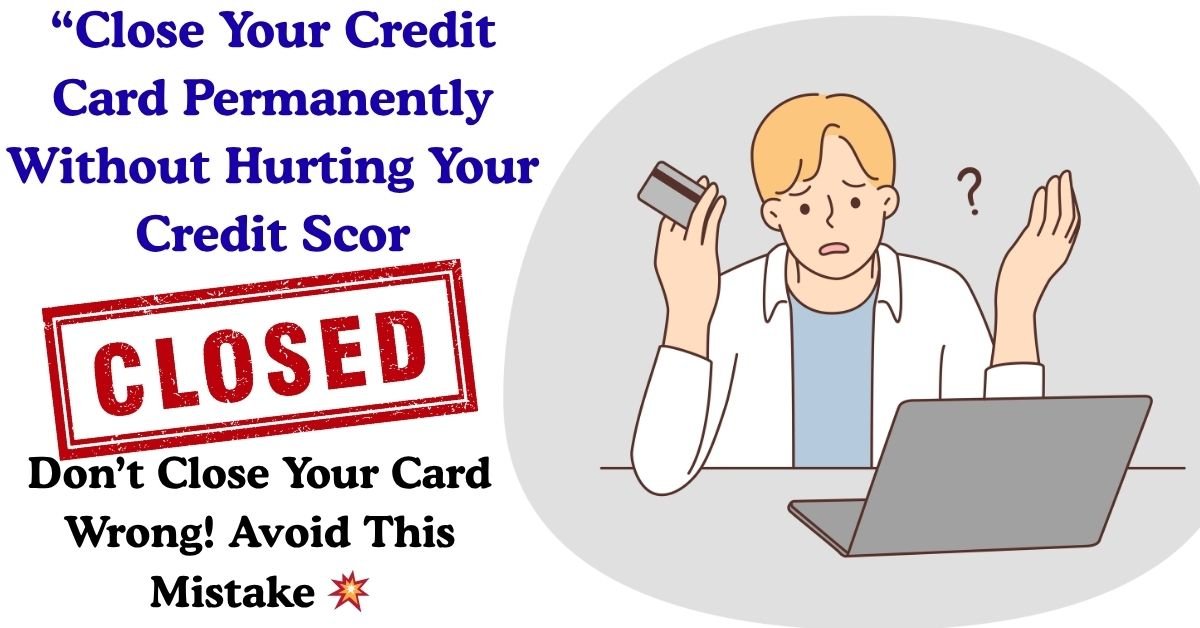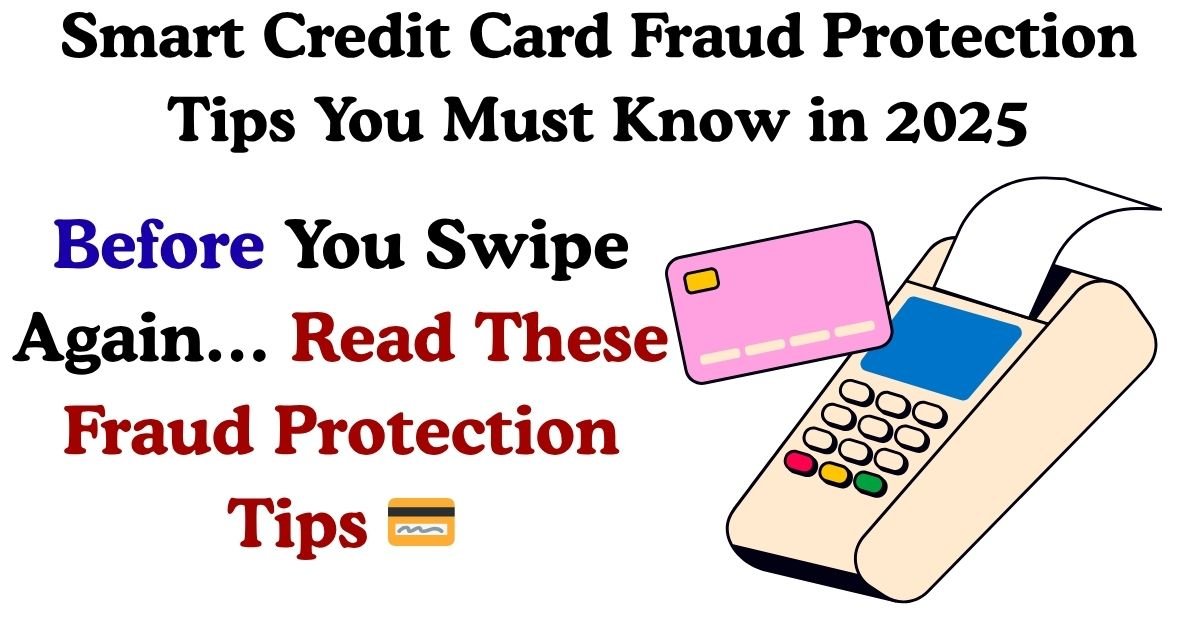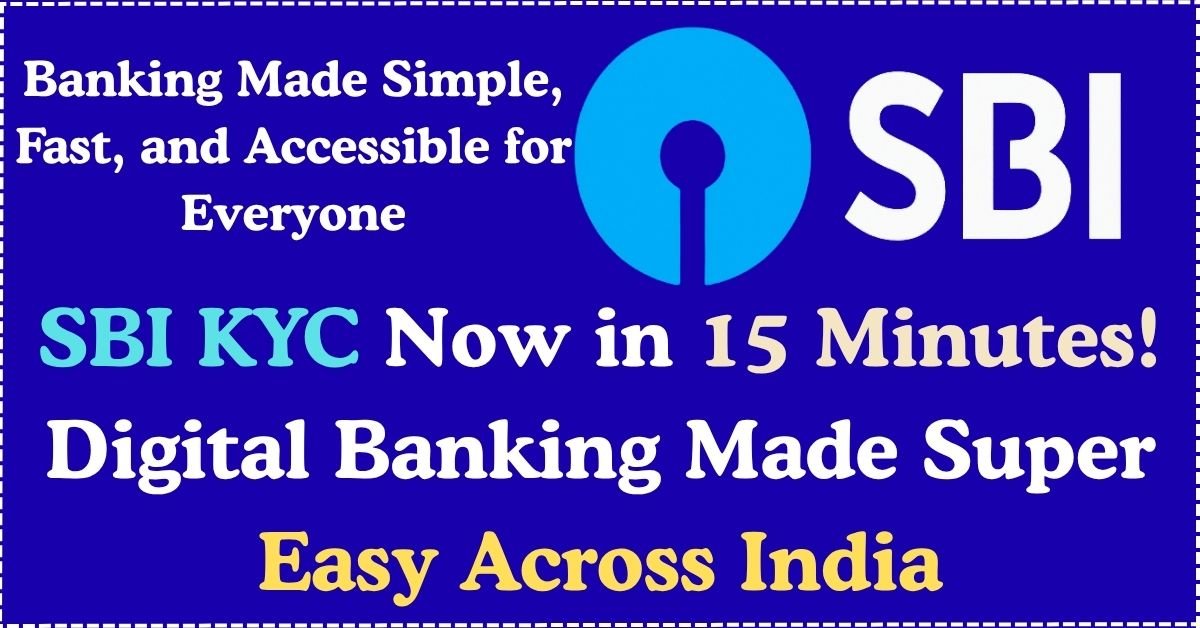Close A Credit Card Permanently: Good financial health requires one to handle credit cards in a responsible manner. However, as much as credit card has the advantage of rewards, cashback, and convenience, there are instances that a credit card has to be closed. It could be a high-annual charge, cards not being used, or making financial matters easier; it is important to close the credit card in the best manner to ensure that it does not adversely affect your credit score.
Here is a detailed step-by-step tutorial on how to permanently close a credit card in such a way that it does not affect your credit report, and you do not lose any money.
1. Review Your Credit Card Account
Check your credit card account before committing any form of decisions. Consider the following:
- Outstanding Balance: Ensure there is no pending balance. Closing a card with a balance can lead to interest accumulation and possible late fees.
- Rewards and Points: Check if you have unredeemed points or cashback. Closing the card without redeeming rewards can result in losing them.
- Recurring Payments: Review automatic subscriptions linked to the card, like streaming services or utility bills, and update payment methods.
2. Clear Your Outstanding Balance
One of the most critical steps is paying off any remaining balance. You can:
- Make a full payment of the balance.
- If unable to pay in full, create a payment plan to reduce the balance before closure.
A zero balance ensures that the closure process is smooth and doesn’t affect your credit score negatively.
3. Redeem Rewards and Benefits
Many credit cards offer rewards, cashback, or points. Before closing:
- Redeem all available rewards.
- Transfer points if your card allows it.
- Ensure no pending promotional bonuses are lost.
4. Cancel Automatic Payments
Automatic payments tied to your card need to be updated or canceled. Failing to do so can result in:
- Failed payments
- Late fees
- Negative marks on credit report
Always inform service providers about the new payment method.
5. Contact Customer Service
Call your credit card issuer and request a permanent closure. While speaking with them:
- Ask for written confirmation of the closure.
- Request a closure reference number for your records.
- Verify if any final payment or fee is required.
6. Monitor Your Credit Report
After closing the card:
- Check your credit report after a few weeks to ensure the card shows as “closed.”
- Confirm there are no errors or pending charges.
- Use free tools like AnnualCreditReport.com to verify your updated credit information.
7. Consider the Impact on Credit Score
Closing a credit card can impact your credit score, depending on:
- Credit Utilization: Closing a card reduces your total available credit, which may increase your utilization ratio.
- Credit History Length: Long-standing accounts contribute positively to credit age. Closing them may shorten your average credit age.
- Mix of Credit: Maintaining different types of credit (revolving, installment) is beneficial.
Tip: Avoid closing your oldest credit card unless necessary.
8. Alternative Options Instead of Closure
If your goal is to reduce fees or manage finances better:
- Downgrade Your Card: Switch to a no-annual-fee card from the same issuer.
- Freeze or Temporarily Suspend: Some issuers allow you to freeze your card temporarily.
- Pay Off and Keep: Keep the card open but pay off balances monthly to retain benefits without using it actively.
Final Thoughts
It does not necessarily involve stress when closing a credit card. These steps will help you to protect your credit score and simplify your finances by reviewing your account, clearing balances, redeeming rewards, updating automatic payments, and checking that your account is closed.
Smart Credit Card Fraud Protection Tips to Keep Your Money
Credit Card Fraud Protection Tips: Life is easier with credit cards; online shopping, emergency payments, but on the other hand,…
How to Close a Credit Card Permanently Without Affecting Your
Close A Credit Card Permanently: Good financial health requires one to handle credit cards in a responsible manner. However, as…
Top 10 Life Insurance Companies for October 2025 – Compare
Selecting the appropriate life insurance would secure your loved ones and guarantee your financial eventuality. There are dozens of providers…
Best Credit Cards in Germany 2025: Compare Fees, Rewards &
Best Credit Cards in Germany 2025 Credit card market in Germany is not an easy way to go particularly to the…
SBI KYC Simplified: Fast, Digital & Hassle-Free Banking Across India
SBI KYC: As part of its efforts to make the Know Your Customer (KYC) and re-KYC process easier, State Bank…
Private Car Insurance Policy: Protect Your Car and Drive with
inInsurancePrivate Car Insurance Policy: The purchase of a car is a joyful event and it is also important to…
With the right management, you are sure to keep on maintaining good credit habits and will not be in the same financial traps in the future.
Braj Verma is a resident of Rajgarh in Madhya Pradesh and is a content writer and freelancer by profession. He has a degree in Political Science from Barkatullah University, Bhopal. He has expertise in subjects like credit cards, banking, loan, insurance, political analysis and digital marketing.






